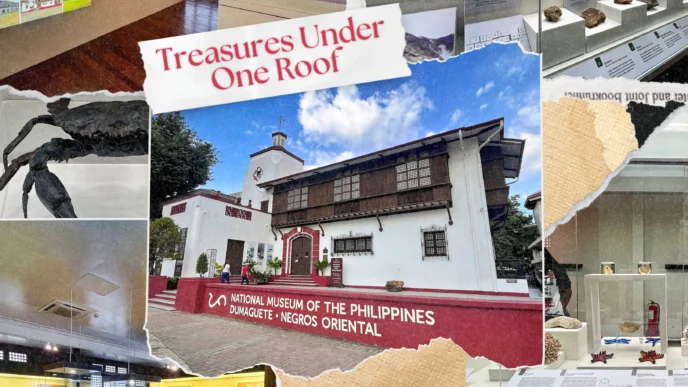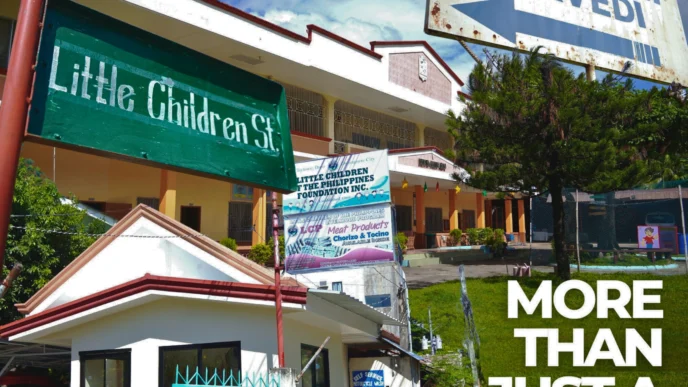By Alyanna Gabas & Yra Suarin
In the quiet hush of early morning, there’s a corner in the Dumaguete Public Market that’s already alive with warmth—not just from the simmering native tsokolate or the steam rising from fresh puto, but from stories, laughter, and a deep sense of home.
This is the painitan, a beloved breakfast spot for locals. At the heart of one of these humble stalls is 64-year-old Telma Martinez whose hands have stirred, served, and shaped countless mornings since she was just a little girl.
“Dose anyos ko, ga tabang nako sa painitan sa akong iyaan. Dose anyos akong edad, Grade 6. Kada adlaw gyud ko diri hangtod karon,” Telma says with a gentle smile as she prepares a pot of thick, hot tsokolate.
(I was twelve years old, helping out at my aunt’s eatery. I was twelve years old, in Grade 6. I’ve been here every day until now.)
After marrying her husband in 1985, she found herself even more deeply connected to the painitan. His grandmother owned the stall back then. When her husband passed in 2023, the stall was transferred to Telma’s name—and so the legacy continued.
But for Telma, this compact corner of the market has always been more than just a business. It was where she was able to raise a family, send her children to school, and build a life of quiet strength.
“Tulo akong anak dayun namatay ang usa, akong anak [nga] laki, [ang] kamagulangan. Diri [painitan] naka human akong mga bata. Nurse ug Maestra. Naas America usa, ug ang usa naas London,” she shares.
(I had three children, but one passed away, my son, who was the eldest […] My children finished studying because of this [painitan]. One became a nurse, the other a teacher. One is in America and one is in London.)
Her journey mirrors that of many others who’ve endured hardship, yet found a way to push through and build a better future.
Today, Telma says things are busier than they used to be. “Maarang-arang ang halin ron, kay ubay-ubay naman ug tawo. Sauna wa kaayo kay gamay ray tawo,” she says.
(Back then, there weren’t many people but now, more and more come. Business is better.)
But beyond profit, Telma treasures the community that gathers around her table.
“Mao man ni ang madakpan dayun, mao raman ni ang barato-barato. Maka kaon naman ka ug dyes, bente. Lami, ‘nya mabusog naka. Maong daghan kaayo mu ari diri,” she says proudly.
(This is what gets picked up quickly—it’s the most affordable. You can already eat for just ten or twenty pesos. It’s delicious, and you’ll be full. That’s why so many people come here.)
For Telma, the best dishes that represent Dumaguete are found in her humble stall. “Tsokolate, puto, mao nay specialty. Native o Sari-sari.” (Tsokolate and puto are the specialties. Either native or different kinds.) Each dish she serves carries with it a piece of home, a story, and the warmth of a life rooted in home.
For Telma, the Painitan isn’t just where she works—it’s where life happens. Here, the meals are simple yet comforting, the kind that fills more than just the stomach.
It’s not just the warmth of the tsokolate or the stickiness of the puto that lingers—it’s the feeling of being part of something familiar, something homegrown. Long after the last sip and bite, it’s the heart of the place that stays.








